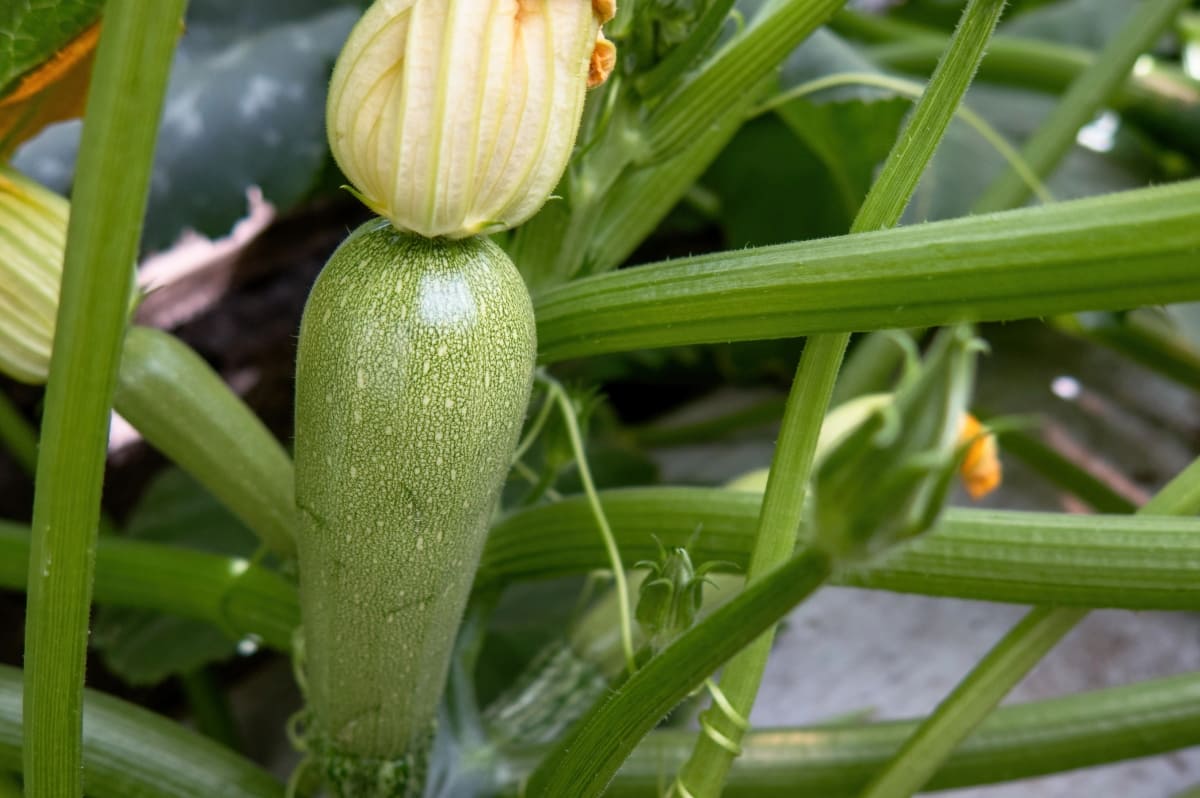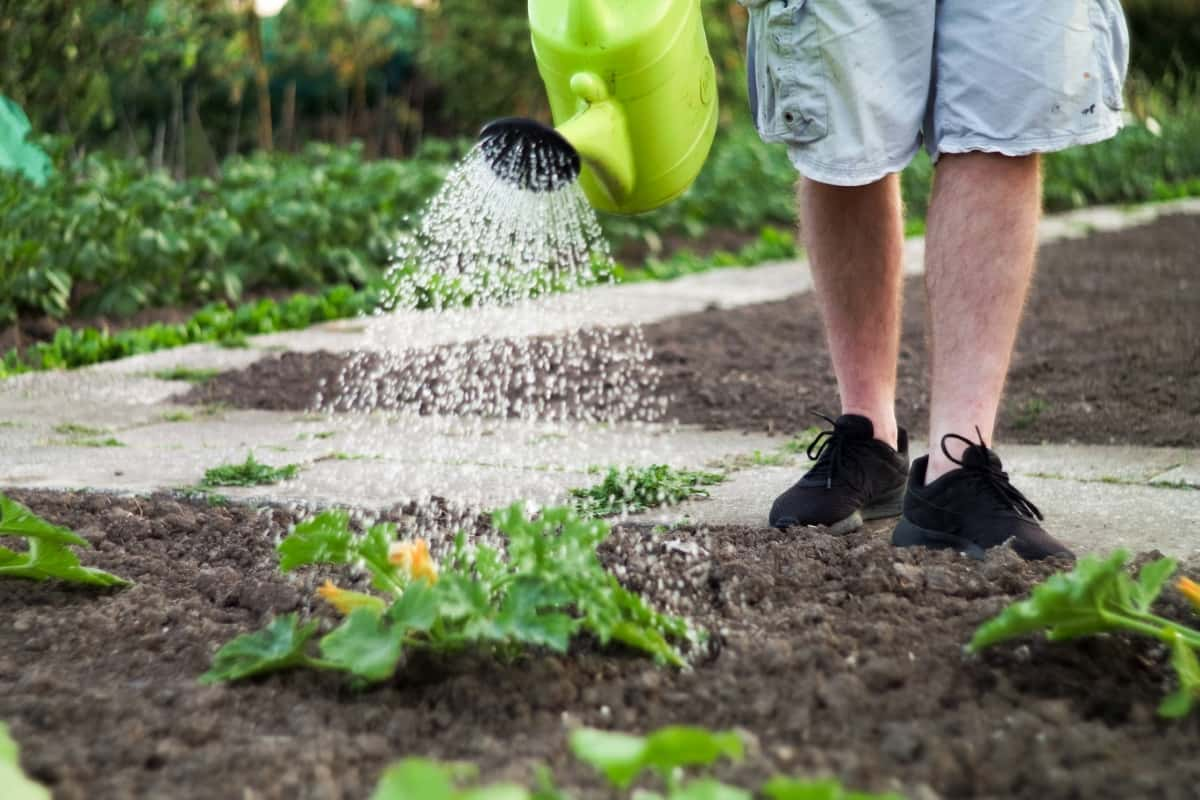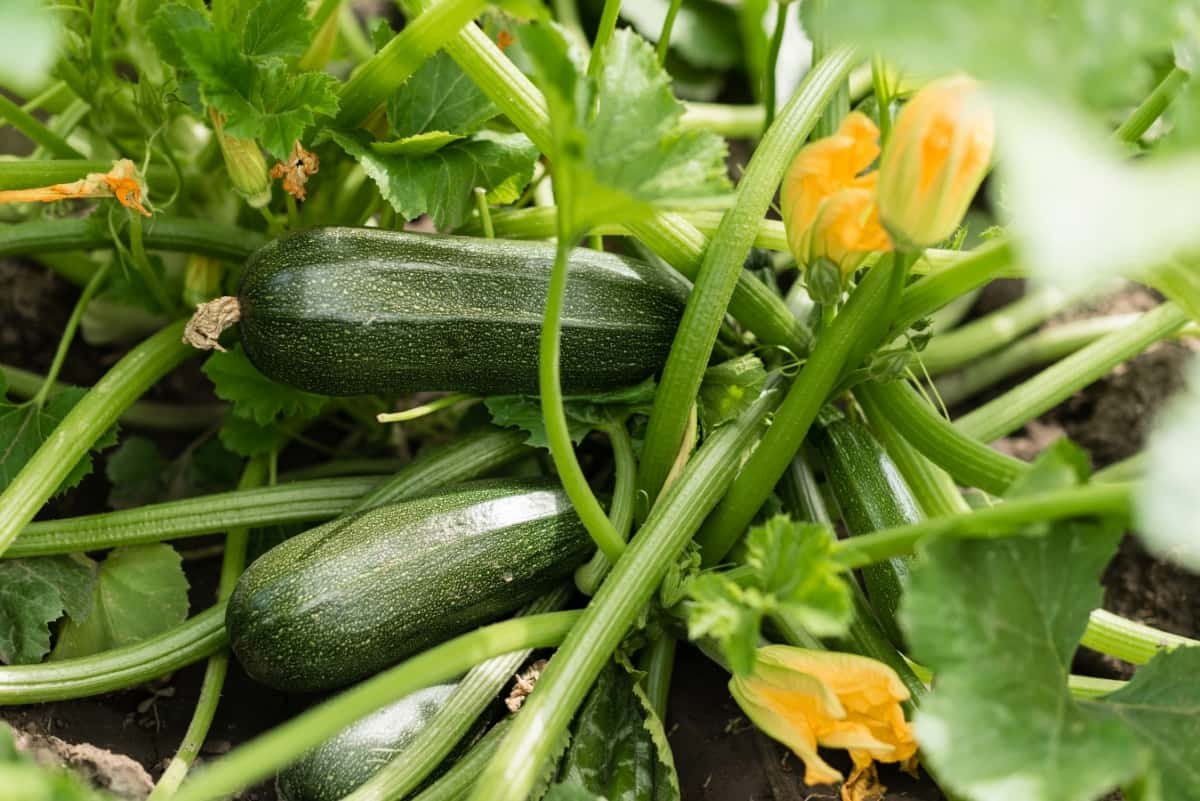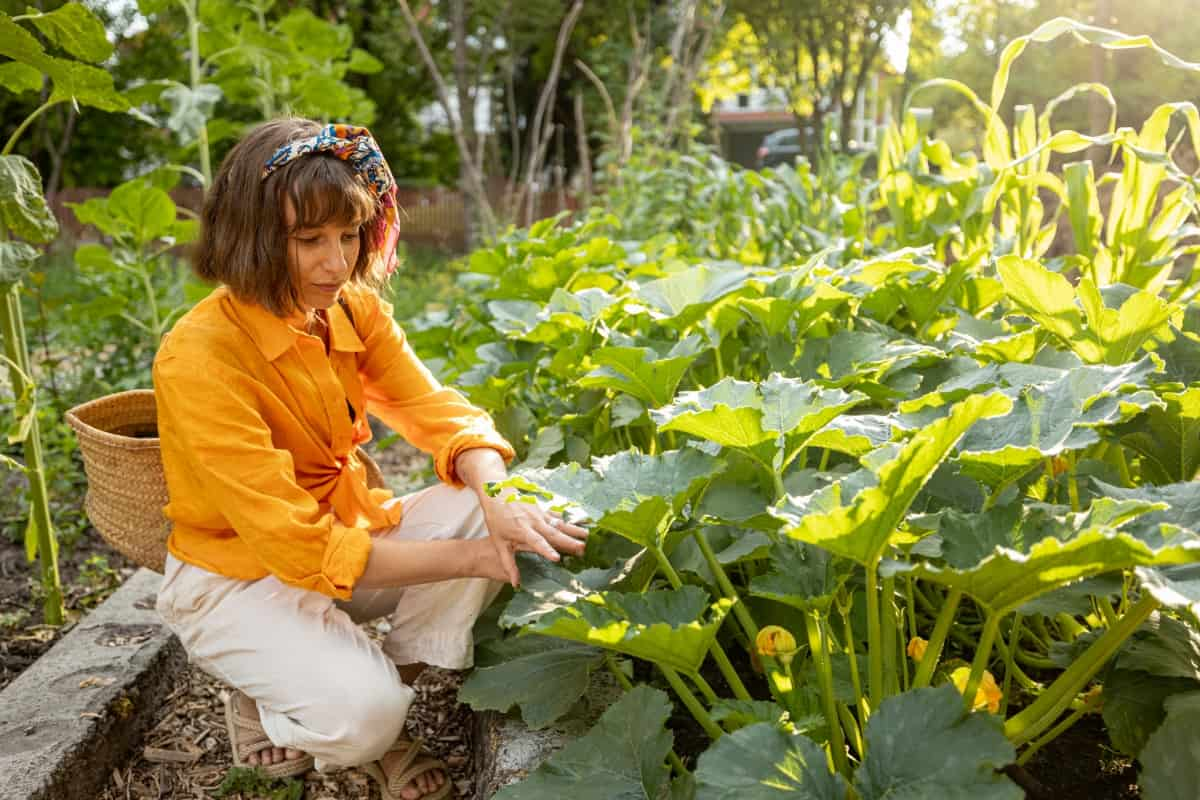Gardening is a delicate art; part of that art involves understanding what grows well with zucchini. Zucchini, or courgette, is a popular vegetable in many gardens. But what should you not plant next to zucchini? Companion planting offers numerous benefits, and understanding the best companion plants for zucchini can lead to a healthier, more productive garden.

This principle applies equally to zucchini companion herbs, vegetables, and flowers. However, it’s just as important to understand the bad companion plants for zucchini, as some plant companions may negatively affect growth and yield.
Benefits of Companion Plants for Zucchinis in the Garden
Companion planting: Grow plants together for mutual benefit in gardening. Regarding zucchinis, companion planting can increase yield, reduce pests, and even improve the flavor of your zucchinis. The zucchini companion plants benefits are numerous. For instance, growing certain plants next to your zucchinis can deter pests, attract beneficial insects, improve pollination, and even boost the nutritional value of the soil. These benefits can be especially pronounced in organic gardening, where natural methods enhance growth and yield.
Best Companion Plants for Zucchinis to Deter Pests
Companion planting can be a natural and effective way to deter pests from your zucchini plants. Plants like nasturtiums, marigolds, and borage are excellent companion plants for zucchini as they can repel harmful bugs and insects, like squash bugs, beetles, and aphids. To combat pests, these plants attract helpful bugs, such as ladybugs and lacewings. Another excellent companion for zucchini is garlic, which can deter pests with its strong scent. By strategically placing these plants in your garden, you can create a healthier and more pest-resistant environment for your zucchinis.
Zucchini Companion Plants for Improved Pollination
Improved pollination is another important benefit of choosing the right companion plants for your zucchinis. Pollination is vital for fruit production, and many zucchini varieties rely heavily on bees and other insects for this process. Planting flowers like bee balm, cosmos, and calendula near your zucchini can attract these pollinators, yielding better zucchini. Furthermore, certain herbs like dill and parsley can also attract beneficial insects and are therefore considered good zucchini companion plants.
Companion Plants for Zucchini in Containers
Container gardening offers a unique set of challenges and benefits, but the principles of companion planting still apply. When growing zucchinis in containers, it’s essential to consider companion plants’ size and growth habits. For example, herbs like basil and mint are excellent choices because they have similar water and sunlight needs to zucchinis but don’t grow too large for the container. Flowers like marigolds and nasturtiums can also be beneficial, as they can deter pests while adding beauty to your container garden.
In case you missed it: How to Pollinate Zucchini Flowers: Hand Pollination, Natural Pollination Methods, and Tips

Companion Herbs for Zucchinis in Organic Gardening
In an organic garden, companion planting becomes even more crucial. Using synthetic pesticides and fertilizers is avoided; instead, natural methods are employed to enhance growth, deter pests, and improve soil health. Some of the best zucchini companion Herbs are basil, dill, and mint. They enhance the flavor of zucchinis, repel pests, and attract beneficial insects. Garlic, too, can be an excellent companion for zucchinis in organic gardens due to its pest-deterrent properties.
Flowering Companion Plants for Zucchinis to Attract Beneficial Insects
Attracting beneficial insects is another advantage of companion planting with zucchinis. When planted near zucchinis, certain flowering plants can draw in these helpful insects that aid in pest control and pollination. Flowers like marigolds, nasturtium, and borage attract insects like ladybugs, lacewings, and bees, which benefit the zucchini plant. These insects help control pest populations and pollinate, leading to a healthier and more productive zucchini plant.
Companion Vegetables for Zucchinis in Raised Beds
Raised bed gardening is a superb method for improving soil health, managing pests, and boosting yield. Regarding companion planting with zucchinis in raised beds, consider vegetables like beans, peas, and radishes. Beans and peas aid in nitrogen fixation, fostering robust zucchini growth. Radishes, on the other hand, can deter pests like beetles and aphids while also improving soil structure and fertility.
Companion Plants for Zucchinis to Improve Soil Fertility
Good soil is vital for a thriving garden, and companion planting boosts soil fertility. Plants like beans, peas, and clover are great companions for zucchinis, as they can fix nitrogen from the air into the soil, where it becomes available for other plants. This leads to a healthier and more productive zucchini plant. Plants like marigolds can also improve soil health by producing chemicals that kill harmful nematodes.
In case you missed it: How to Increase Female Flowers in Zucchini: Explained in 10 Simple Steps

Companion Plants Chart for Zucchinis in the Garden
To simplify companion planting with zucchinis, consider creating a companion plants chart. This chart should include the names of beneficial companion plants, their benefits (such as pest deterrence, pollinator attraction, or soil improvement), and any specific planting instructions. Also, it should list bad companion plants for zucchinis, like potatoes and other nightshade family members, which can inhibit zucchini growth. By referring to this chart when planning and planting your garden, you can maximize the benefits of companion planting for your zucchinis.
Proper Spacing and Timing for Companion Planting with Zucchinis
Spacing and timing are crucial factors when it comes to companion planting. If you crowd your plants too close together, they may compete for nutrients and sunlight, adversely affecting their growth and productivity. On the other hand, planting them too far apart may fail to provide companion planting benefits.
When planting zucchinis and their companions, ensure they have ample space to grow and mature without competing with each other. As for timing, consider the plants’ growth rates and maturity periods. Some companions may need to be planted earlier or later than others to ensure they’re at the right growth stage when interacting.
Rotation of Companion Plants for Healthier Zucchinis
Crop rotation is another crucial aspect of companion planting. Growing the same crop in the same place year after year can deplete the soil and promote the build-up of pests and diseases. By rotating your zucchinis and their companion plants, you can keep the soil healthy and prevent many common garden problems. After growing zucchinis and beans, which add nitrogen to the soil, you could then plant leafy greens like spinach or lettuce to make the most of the nutrient-rich soil.
In case you missed it: Frequently Asked Questions About Growing Zucchini from Seed to Harvest

Conclusion
Understanding the best companion plants for zucchini and implementing companion planting principles can significantly benefit your garden. Not only can it help deter pests and attract beneficial insects, but it can also improve pollination, enhance soil fertility, and increase your zucchini plants’ overall health and productivity.
Whether gardening in containers, raised beds, or large garden plots, planning and implementing a companion planting strategy with your zucchinis is well worth the effort. Remember, a successful garden is a well-planned garden, and understanding what grows well with zucchini can make all the difference.
- Ultimate Guide to Ossabaw Island Hog: Breeding, Raising, Diet, and Care
- Ultimate Guide to Juliana Pig: Raising Facts, Size, Diet, Care, and Lifespan
- Raising Lleyn Sheep: Disadvantages, Price, Uses, Characteristics, and Care
- Ultimate Guide to Meishan Pig: Breed Facts, Breeding, Raising, and Care
- Ultimate Guide to Teacup Pigs: Raising, Diet, Lifespan, Cost, and Care
- Guide to Raising Poll Dorset Sheep: Facts, Profile, Characteristics, Uses, and Care
- Ultimate Guide to Bighorn Sheep: Characteristics, Diet, Lifespan, Breeding, and Lifecycle
- Ultimate Guide to Raising Katahdin Sheep: Farming Facts, Breed Profile, Uses, and Care
- Ultimate Guide to Raising Oreo Cows: Belted Galloways Farming Facts, Profile, Uses, and Care